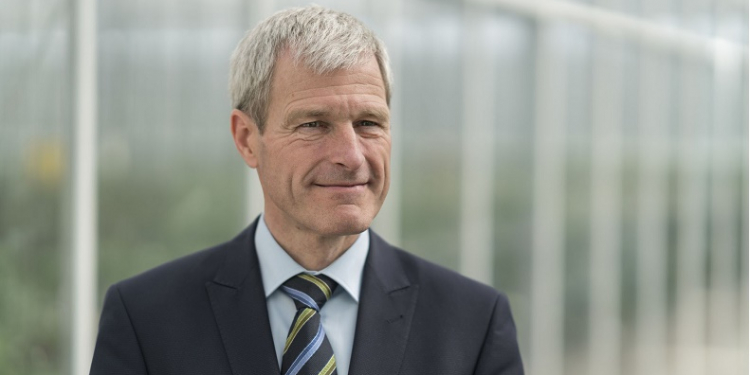Potato seed provider HZPC is looking at how to embed more sustainability in its supply chain. But that is not all: CEO Gerard Backx tells us the company is also trying to breed better potatoes.
How are you making your potato seed business more sustainable?I had a lot of problems to solve in the beginning, and we only really started to work on corporate social responsibility 10 years ago. When I thought about what we could do, my initial feeling was that seeds are a food source – so there isn’t much to improve upon.
Potatoes are a very sustainable product to begin with, because they produce the biggest amount of food with the smallest amount of water. They grow in a very short time – sometimes as short as 90 days, compared with 150 days for cereals – which means you’re using less water.
But actually we can do quite a lot more.In our buildings, for instance, we can look at reducing energy use, waste and water use. We also consider the energy footprint of our transport vessels when shipping seeds across the world.
But that’s still not how you can really distinguish yourself as far as CSR is concerned. What we can contribute are new varieties that can help to improve environmental impact in the future.
We try to develop different disease resistances, to make sure that our potatoes can be grown without or with a very reduced amount of pesticides. Of course yield is important, too, because if you can produce more product on the same amount of land with the same amount of energy, then you are more sustainable.
What was it like implementing sustainability programmes at HZPC? Is your industry on board with CSR?
I believe that good sustainability thinking and profit generation go hand in hand. And it didn’t cost us a huge amount, but it is difficult to balance the cost.
The other big difficulty was changing people’s mindsets – both employees within the organisation and our farmers’ in the supply chain. If their thinking is restricted to short-term costs, and they organise logistics by buying the cheapest containers or trucks, then that is not always good for the company’s sustainability objectives.
But if you say you want to go for the best, you have to define what that is first, and it needs to be very well-discussed and understood by all stakeholders.
The processing industry, for example for French fries, is putting a lot of thought into CSR because the industry is consumer facing, and companies such as McDonald’s are therefore promoting the standard in the supply chain.

What are some of the latest innovations in seed potatoes?
The big markets are not changing that much, but we’ve brought new concepts to the market, such as coloured potatoes, which are especially appreciated around Christmas.
Another example is the low-carb French fry. We are not in the French fry business, because we are seed potato company, but someone who is diabetic came to us and asked whether it was possible to produce French fries without the carbohydrates. We tried to play around a little bit with that, and we ended up with low-carb French fries. We’ve now launched this concept, Leon & León Fries, and we are looking for a buyer. It’s a limited market, of course, so we have to plan it very carefully.
But we also have a profit-sharing scheme with the growers whereby they earn a bit extra. It makes our company more sustainable, and for the growers it is attractive to produce our potatoes as they can profit from a good market.
Do you have a position on gene-editing?
We have publicly come out on this subject. We have permission to work with this technique in our laboratories, but it is only applied in the field outside Europe because here gene-editing is considered to be equivalent to GMO. So we will have to offer these products in markets outside of the EU, such as Canada and India, where they are not categorised as GMO.
As plant breeders, we want to progress and improve our potatoes. And we can improve all kind of features for climate reasons: heat tolerance, drought tolerance and disease resistance. That is possible with gene-editing, which I don’t consider to be the same as genetic modification, or GMO. GMO is when you transfer a gene from a bell pepper to a potato – from one species to another. For instance, creating more drought-tolerant potatoes in the classic way may take us a three or four decades, whereas we can achieve the same progress in a few years’ time with gene-editing.







